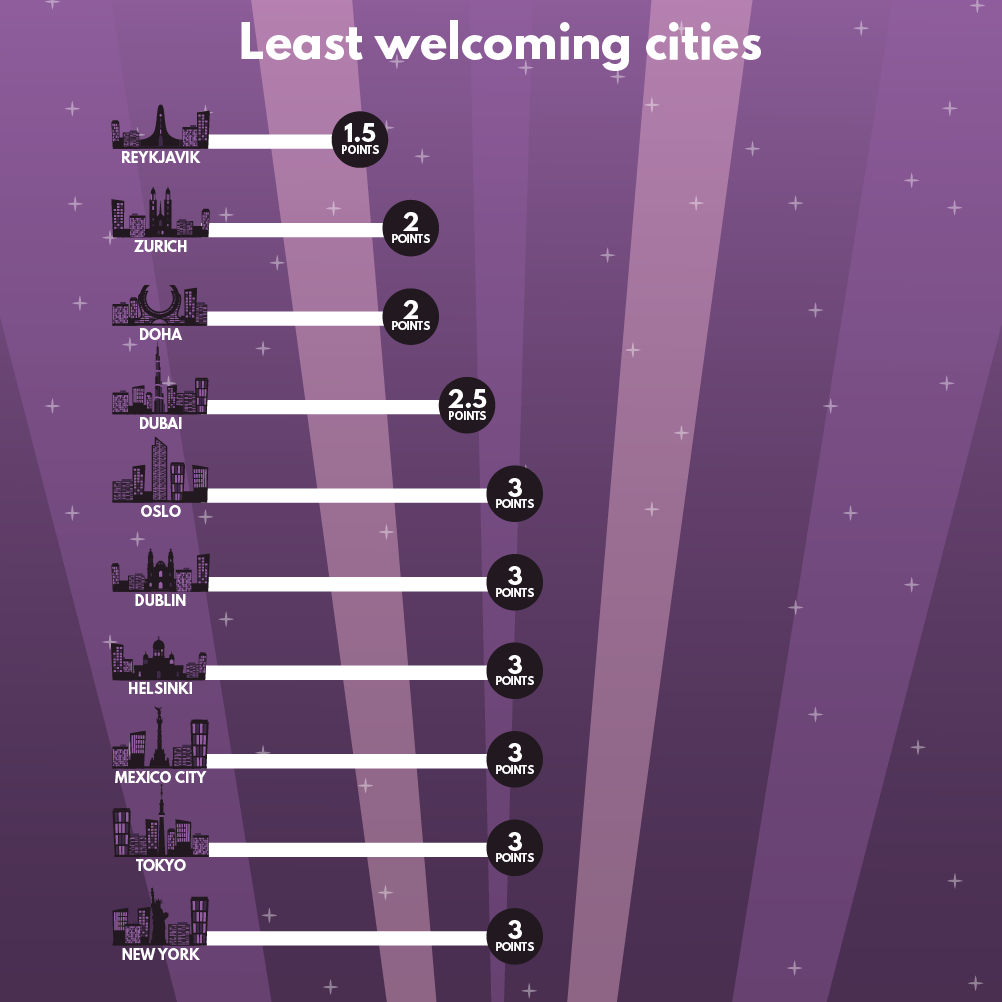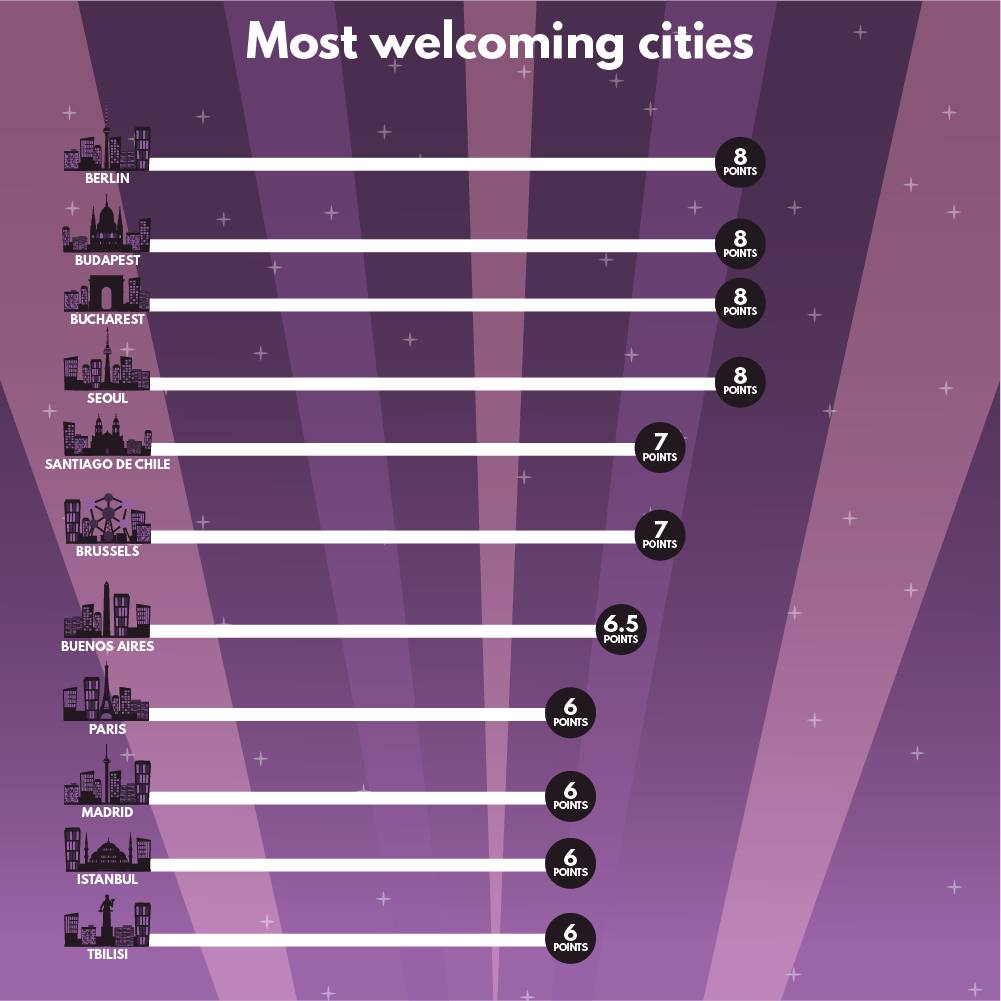We at the Consumer Choice Center want to ensure that consumers have the best possible experience if they decide to go on a night out. Readers must know where they can find affordable yet top-quality services, enjoy a flexible schedule accommodating the diverse needs of different people, and travel safely to and from a venue. At the same time, companies, local authorities, and states should understand how to cultivate a good nightlife environment for customers.
To this end, we created a new index examining how thirty cities worldwide manage their nightlife scenes. It compares each destination using similar fixtures of urban entertainment regulation – mandated opening hours for nightclubs, restaurants, and bars in each locale, the “last calls” for nightclubs and bars, the average prices for an imperial pint of beer and a standard Big Mac, and the availability of night-time public transport or sharing economy services. We note the presence and content of these rules before analyzing their impact on consumer welfare and contrasting them with equivalent regulations elsewhere.
2023 may mark the entertainment industry’s moment of recovery from the Covid-19 pandemic. At the Consumer Choice Center, we want consumers to know the best cities for a night out, measured by the availability of services, flexible schedules, affordable drinks or meals, and safe trips back home. We also want local authorities to know which policies improve consumers’ lives and which do not.
Our report looks at thirty cities worldwide using six variables: mandatory opening and closing times, last-call legislation, the average retail price of a beer or a Big Mac, night transport, and ride-hailing. We discover an underlying pattern by comparing the least and most nightlife-friendly towns. Thriving cities have no or very lax opening and closing hours, no or permissive last calls, cheap drinks or food, and allow for night transportation and ride-hailing. Consumers and policymakers alike can apply this lesson to their future decisions. By doing so, they can reap the benefits of an industry’s $31.46 billion recovery, enrich the arts, remove onerous taxes, and provide security to all.

We find that the least attractive destinations include Reykjavik, Zurich, Tokyo, Doha, and Dubai. Otherwise, fantastic places to live, these cities have a common tendency to enact strict regulations intended to control nightlife. They thus feature a combination of rigid opening or closing hours, tough last calls, and steep prices on alcoholic beverages or comfort food due to punitive sin taxes. They also tend to neglect the importance of ride-hailing or night buses for people’s safety.
While grounded in putative reasons to protect people from the worst party behavior, this text shows how the measures make consumers’ lives more tedious, degrade service quality, deny customers their preferred lifestyle choices, and leave partygoers less safe, including when they return from their time in town.
Conversely, the best nightlife towns remain open to excitement and experimentation. Urban centers like Berlin, Budapest, Paris, and Tbilisi have no legally or significantly lax mandated opening and closing times (though restrictions may vary from district to district), affordable beverages and meals, and multiple transportation methods that remain accessible 24 hours and seven days a week.
The result is that people enjoy greater well-being via the benefits of dancing and relaxation. Beyond psychological advantages, a thriving entertainment industry indirectly boosts tourism, the arts, retail, and other adjacent markets. Consumers who live in cities with active nightlife thus enjoy higher quality options to loosen up. Finally, our work illustrates how ride-hailing is the preferable substitute for night services, getting everyone (especially vulnerable people) home safely.

Our report works as a handy guide for consumers to find the place that fits them best. They can compare the courses of action in their city with other towns worldwide, looking for fun abroad if their locale does not suit their tastes. They can also see what holds entertainment back from full post-pandemic recovery: the monotony of running around town looking for an open place is not accidental but the result of mandatory closing times and obligatory last calls. Exaggerated prices on shelves are not the work of greedy businesses but a deliberate policy choice by the city council or national authorities. Having to walk home along unlit bus stations or deserted alleyways at the crack of dawn is not bad luck but a direct result of policies discouraging ride-hailing and night transport.
We will, from time to time, keep you updated on new and troublesome regulations in your country and ways that you can help use fight them. Don’t worry, being a member is always free!